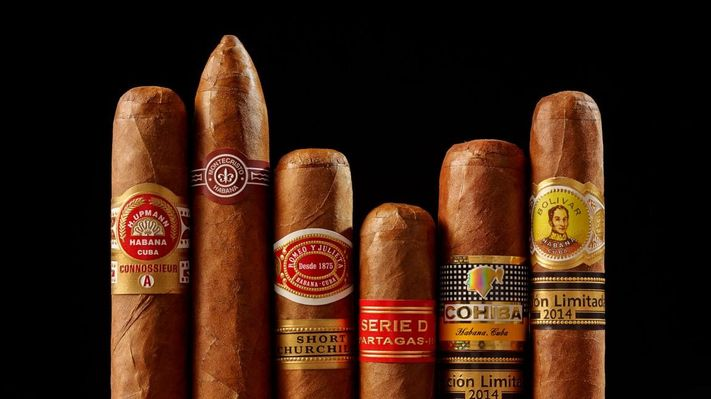Canadian Network on Cuba
Canadian Network on Cuba Response:
Exposing the Fabrication & Smear Campaign Masquerading as Human Rights: No, Cuban Cigars and Charcoal Are Not Products of “Modern Slavery”
The latest accusations by the Madrid-based group Prisoners Defenders are nothing more than a malicious smear campaign designed to discredit Cuba, undermine its economy, and provide political cover for the continuation of Washington’s criminal economic war. The accusations follow a familiar formula of unproven accusations, sensational assertions, cherry-picked anecdotes, and twisted figures, all aimed at vilifying Cuban society and justifying further economic acts of economic warfare. These sensationalist claims that tens of thousands of Cuban prisoners are forced to produce cigars and charcoal for export under “modern slavery”—collapse under even the most basic scrutiny.
To begin with, the credibility of Prisoners Defenders as a source is deeply questionable. The organization, based in Madrid, has a reputation for echoing the views of aggressive anti-Cuban factions in Europe and the U.S. Prisoners Defenders has a record of weaponizing false testimonies and extrapolating sweeping conclusions from a handful of anonymous interviews. Such methodology is political theatre, not serious research. Its publications typically consist of politically motivated “reports” largely reliant on unidentified testimonies, unverifiable allegations, and broad generalizations. In this instance, the organization claims to have spoken to 53 individuals, yet extrapolates this to allege 60,000 “forced labourers.” This does not reflect thorough investigation but rather ideological propaganda disguised as advocacy for human rights.
Even more damning is the fact that Prisoners Defenders includes on its so-called list of “political prisoners” individuals directly tied to violent terrorist plots against Cuba. On September 8, Cuban authorities revealed a foiled terrorist plan “prepared, financed and organized” in Florida. The Ministry of the Interior detailed how Ardenys García Álvarez—living in the U.S. since 2014—illegally entered Cuba with weapons and ammunition to recruit people and launch an armed uprising. García Álvarez, who confessed to receiving training and support from the Florida-based terrorist group La Nueva Nación Cubana en Armas, is nonetheless listed by Prisoners Defenders as a “political prisoner.” This exposes the NGO’s true function: whitewashing violent mercenaries and presenting them as victims of repression, while feeding disinformation into international institutions to justify further sanctions against Cuba.
The assertion that Cuban detainees are involved in the production of the country’s renowned cigars or the export of charcoal for the international market is utterly unfounded. The claim that Cuban inmates hand-roll Cohiba cigars or produce export-grade marabú charcoal is absurd. Cuba’s premium cigar industry is a is a national treasure built on centuries of expertise, and overseen by Habanos S.A. with rigorous quality controls and regulations. Prestigious brands like Cohiba and Montecristo demand stringent quality control by experienced master rollers. These cigars are crafted by highly trained torcedores, not prisoners.
Suggesting that maximum-security inmates are crafting Cohiba cigars destined for export is not only defamatory but not ludicrous. Similarly, the marabú charcoal sector operates through structured cooperatives and state enterprises, employing trained personnel and adhering to rigorous quality and phytosanitary standards for export. The notion that this intricate production and trade network relies on coerced prison labour is another fabrication; a falsehood aimed at undermining Cuba’s export markets.
Furthermore, the accusations reveal a fundamental misconception – intentional or otherwise – regarding the function of work programs within Cuba’s prison system. Similar to practices in numerous nations, Cuba integrates work and educational initiatives into its penitentiary system to aid in rehabilitation and societal reintegration. Prison work and study programs in Cuba follow international norms, particularly the UN’s Nelson Mandela Rules, which recognize the rehabilitative role of labour and education. Inmates are provided with opportunities to acquire skills in agriculture, industry, and services to facilitate their employability post-release. Far from resembling “modern slavery,” Cuba’s programs uphold these principles, aiming to lower recidivism rates and offer inmates dignity and purpose during their incarceration.
Unlike in countries such as the U.S.—where prisoners, overwhelmingly Black and Latino, are legally forced to work for private profit at pennies an hour—Cuba’s programs are designed to reintegrate people into society, not to exploit them. The attempt to equate Cuba’s practices with “modern slavery” is not only baseless but hypocritical, given the silence of these same NGOs about systematic prison exploitation in the United States and Europe.
The accusations manipulatively introduce claims of racism and sexual abuse without substantiation, relying once more on anonymous accounts to paint a sensationalized picture likely to resonate with Western audiences. These are grave claims presented devoid of independent verification, supporting documentation, or the chance for accused entities to respond. It amounts to insinuative character assassination. Ironically, the so-called NGO highlighting racial disparities in Cuba disregards documented systemic racism and exploitation within its own spheres – Spain, the U.S., and the European Union – where prison labour is prevalent, often benefiting private interests directly. For instance, in the U.S., incarcerated individuals, disproportionately Black and Latino, are compelled by law to work for meager wages, a reality conveniently overlooked by the NGO as it feigns outrage over Cuba’s practices. It also ignores that Cuba has initiated Color Cubano, the most comprehensive and intensive program in the Americas to address and eliminate racism and racial discrimination at all levels of society.
Ultimately, this offensive should be perceived within a geopolitical framework, forming part of a broader scheme and orchestrated campaign to stigmatize and delegitimize Cuba. By besmirching the reputation of Cuban goods and commerce, it seeks to lay the groundwork for further coercive measures against the island nation. The ultimate objective is evident: isolate Cuba, deprive it of foreign exchange, and exacerbate the challenges faced by its populace in a bid to incite political upheaval. The strategic timing of this offensive for maximum media impact, alongside the eagerness of certain outlets to propagate unverified accusations without Cuba’s perspective, underscores its genuine intent.
This is especially cynical given the very real terrorism against Cuba that continues to be organized with impunity from U.S. soil. While Florida-based terrorists openly plot sabotage and violent attacks— including training with live weapons—Cuba is maliciously placed on Washington’s “State Sponsors of Terrorism” list, a designation designed to strangle its economy and isolate it internationally. The true cynicism lies in this inversion: terrorists are protected and even laundered as “dissidents,” while Cuba, a consistent victim of terrorism, is slandered as a perpetrator.
The accusations of “modern slavery” are a fabrication, propagated by politically motivated organizations whose record shows they are less concerned with human rights than with advancing Washington’s long-standing goal of destroying the Cuban Revolution. Until real, verifiable evidence is presented—not anonymous politically driven hearsay filtered through NGOs tied to extremists—these claims must be rejected for what they are: propaganda aimed at destroying Cuba’s sovereignty and economic lifelines and seeking to discredit a nation that refuses to yield to imperial dictates.
Isaac Saney,
Executive Committee Canadian Network on Cuba


Leave a Reply